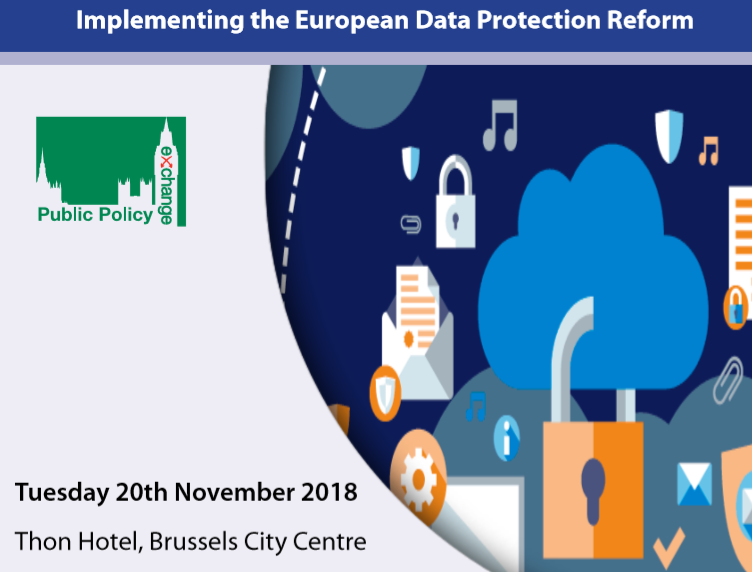Introduced in May 2018, the EU General Data Protection Regulation (GDPR) is considered “the biggest change to the EU’s data protection rules in over twenty years” (EUROPA 2018). Prior to their introduction, 8 out of 10 people felt they didn’t have complete control of their personal data (Eurobarometer 2015). Whether these developments allay concerns and implement comprehensive measures for dealing with the Internet era’s global and ubiquitous data requires examination.
Designed to create a modern framework for data protection with increased legal certainty, protections and obligations, the EU’s General Data Protection Regulation (GDPR) and the Data Protection Directive (DPD, so called Police Directive) came into force in May, having been agreed on by the European Parliament and Commission in 2015. The reforms aim to strengthen individual rights, streamline the data economy through standardised legislation across the Digital Single Market and facilitate the free flow of data to promote public security. Currently, the EU’s ePrivacy Directive, Regulation 45/2001 outlining rules for data protection in EU institutions and a directive on Protection Rules for Telecoms Networks and Internet Services are being considered, altered and replaced to ensure they are in keeping with the reforms.

The rapid advancement of technology makes data protection especially challenging. The latest reforms, designed not to be prescriptive or short-sighted, contain general terms which are at risk of misinterpretation or manipulation. Moreover, third country agreements and information sharing, recently illustrated by the EU-US Privacy Shield issues and the application of the Passenger Name Records Directives, demonstrate the complexities of data protection which stretch far beyond the European community. Navigating incompatibility issues and ensuring suitable security measures which don’t breach fundamental rights remains a challenge.
This international symposium offers an invaluable opportunity for key stakeholders in the public and private sectors to assess the latest data protection developments and their practical implications for individual privacy, the digital economy and security. The event will discuss the changing relationship of the user to their data and its impact on the digital economy. Striking the balance between security and privacy concerns will also be addressed. Furthermore, the event will explore the interoperability of EU data protection regulation with privacy frameworks worldwide and solutions for overcoming current incompatibilities.
Website: http://www.publicpolicyexchange.co.uk/events/IK20-PPE1?ss=em&tg=1a
Delegates will:
- Assess the data protection reforms in practice and their impact on users, the digital economy and security
- Debate the future of data protection regulations in a rapidly advancing digital environment.
- Discuss the practical implications of a user-centric approach to data protection
- Reflect on the opportunities and challenges posed by data portability
- Consider ways to embrace the potential of the digital economy whilst protecting fundamental rights
- Explore the relationship between data protection regulations and emerging technologies
- Determine ways to guarantee public security without compromising data protection rights
- Examine the interoperability of EU rules with privacy frameworks worldwide
To view our brochure, including the full event programme, click here.



 If you have interesting news and events to point out in the field of digital cultural heritage, we are waiting for your contribution.
If you have interesting news and events to point out in the field of digital cultural heritage, we are waiting for your contribution.
























